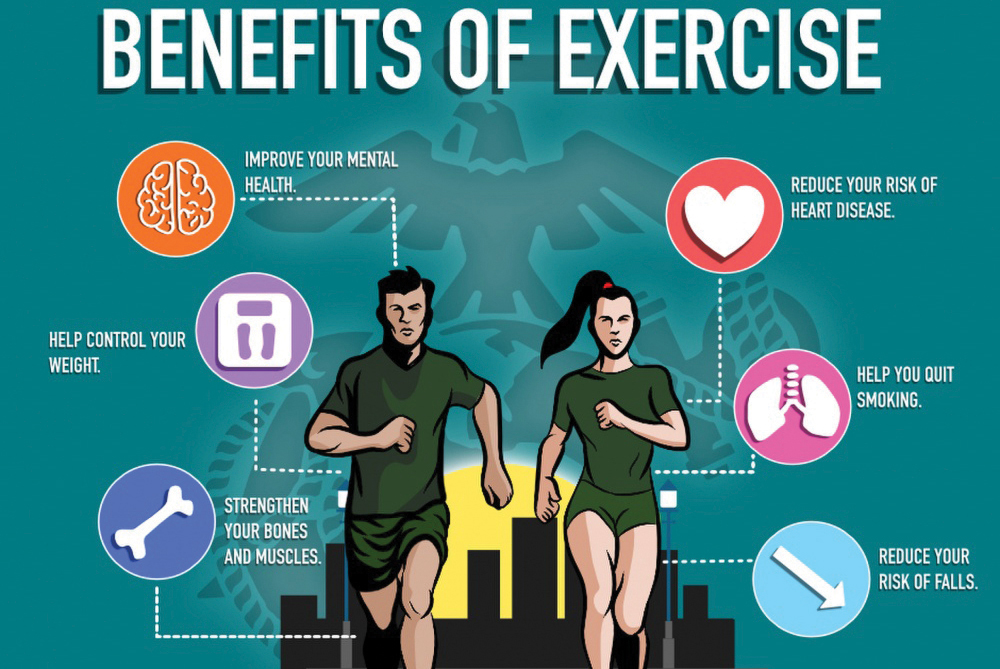The Psychological Benefits of Exercise

Exercise offers numerous psychological benefits that can positively impact mental well-being. Some of these benefits include:
Improved Mood: Exercise stimulates the production of endorphins, neurotransmitters in the brain that promote feelings of happiness and euphoria. Regular physical activity can help alleviate symptoms of depression and anxiety, leading to an overall improvement in mood.
Stress Reduction: Physical activity acts as a natural stress reliever by reducing the levels of stress hormones such as cortisol and adrenaline in the body. Exercise can help clear the mind, improve focus, and provide a healthy outlet for managing daily stressors.
Enhanced Self-Esteem: Regular exercise can boost self-esteem and self-confidence. Achieving fitness goals, improving physical appearance, and mastering new skills contribute to a sense of accomplishment and self-worth.
Increased Energy Levels: Engaging in physical activity can increase energy levels and reduce feelings of fatigue. Regular exercise improves cardiovascular fitness and enhances overall endurance, allowing individuals to feel more energetic throughout the day.
Better Sleep Quality: Exercise has been shown to promote better sleep by regulating the sleep-wake cycle and improving sleep quality. However, it's important to avoid vigorous exercise close to bedtime, as it may have a stimulating effect that interferes with sleep.
Cognitive Benefits: Physical activity is associated with improved cognitive function, including better memory, concentration, and problem-solving skills. Exercise stimulates the release of brain-derived neurotrophic factor (BDNF), a protein that supports the growth and maintenance of brain cells.
Reduced Risk of Cognitive Decline: Regular exercise is linked to a lower risk of age-related cognitive decline and neurodegenerative diseases such as Alzheimer's disease. Physical activity promotes neuroplasticity, the brain's ability to adapt and reorganize neural pathways.
Social Interaction: Participating in group exercise classes, team sports, or outdoor activities can provide opportunities for social interaction and connection with others. Social support is an important factor in mental health and can contribute to feelings of belonging and camaraderie.
Positive Coping Mechanism: Exercise can serve as a positive coping mechanism for dealing with life's challenges and setbacks. Engaging in physical activity can help individuals manage emotions, reduce rumination, and gain a sense of control over their circumstances.
Overall, regular exercise is not only beneficial for physical health but also plays a significant role in promoting psychological well-being, reducing stress, improving mood, and enhancing overall quality of life.
Thank you,
